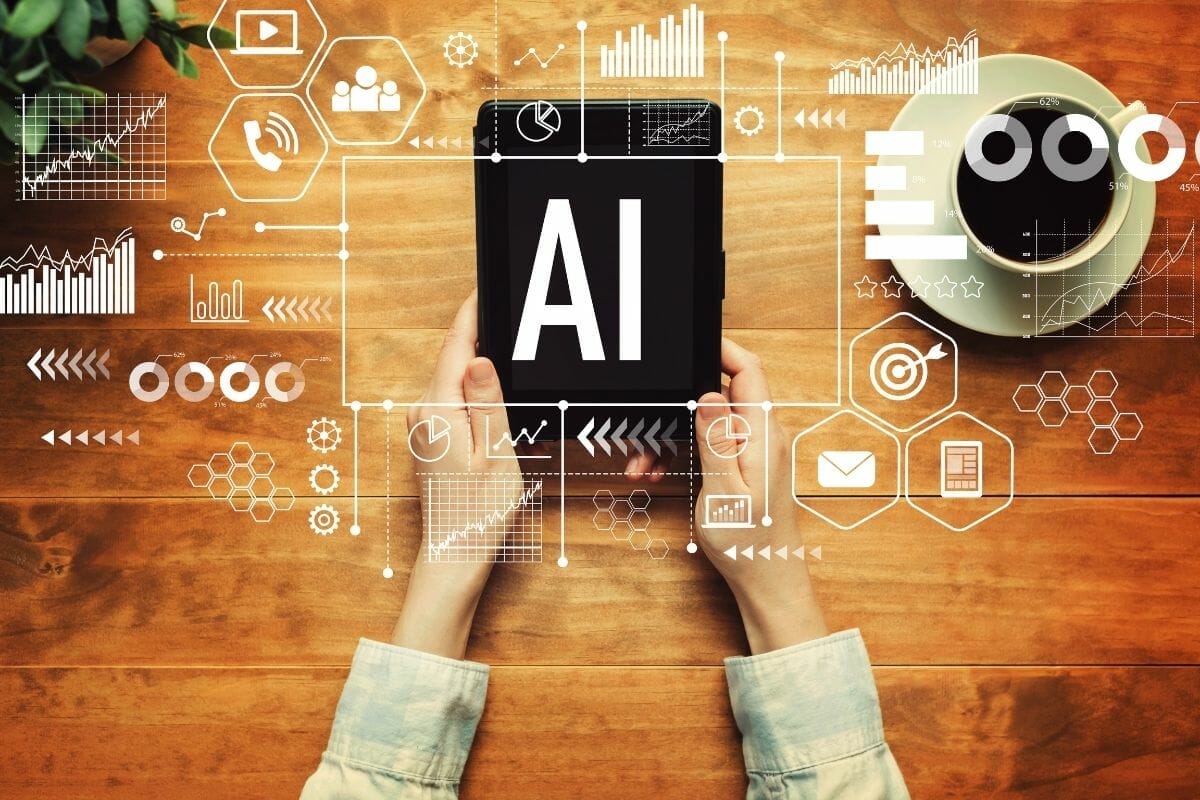Entrepreneurs, Online Business, Productivity, SEO
How Artificial Intelligence will Help Your Online Store Grow Faster Than Ever Before
- By Jason Brashear
- No Comments
17 Sep

How Artificial Intelligence will Help Your Online Store Grow Faster Than Ever Before
Artificial intelligence has been a hot topic in the tech world for some time now. In this social media age, companies are constantly looking to find ways to get ahead of their competition by being innovative and creative.
One way they do that is through artificial intelligence. This blog post will discuss how AI can help an online store be more successful.
We’ll go over what it is and how it can contribute to retail sales in short-term and long-term relationships with consumers.
We’ll also talk about challenges that might arise when using AI in an online environment, and limitations we may need to consider before implementing it into our systems or algorithms. So, stay tuned!
What is Artificial Intelligence (AI)?
The term artificial intelligence (AI) can be a bit murky because it is difficult to define. However, we can generally think of AI as an intelligent system that can mimic human cognitive processes in decision-making and problem-solving.
In the retail world, this means that a retailer would have a computerized program or algorithm that would be able to make independent and intelligent decisions on behalf of a business.
Of course, we can’t forget that data has become the driving factor for any form of success in the retail world today–and AI is designed to support such an approach as well as empower retailers with information they wouldn’t normally have access to without it.
How Does it Work?
Artificial Intelligence is one of the newest forms of technology that employs sophisticated computer systems to process information and solve problems.
These self-learning, cognitive algorithms capable of reasoning through data are designed to improve business processes with minimal human input.
AI can facilitate superior decision-making by improving speed and accuracy, enabling employees to focus on higher-value tasks instead of mundane ones.
It’s very easy to get started with AI technology in retail, and it doesn’t have to be expensive or difficult when you have a strategy in mind.
You need to start small and scale up the technology as time goes by for your business to see a return on investment–and eventually surpass your competition.
Benefits of Artificial Intelligence in eCommerce Stores

Now that you have a better understanding of artificial intelligence let’s talk about how it can help you.
A retailer can benefit from using AI in their business to improve sales and marketing strategies. By implementing intelligent technology into your company, you’ll be able to:
1. Improve Customer Engagement.
Even though online shopping is convenient, it isn’t always personal. Retailers can improve this facet of their business by using AI to engage consumers on a more personal level through email, social media, and other platforms.
With intelligent technology in place, retailers will send personalized content that offers promotional offers and discount codes to specific customers.
This would require a retailer to create a profile for each customer based on their shopping history, which the technology would do after learning from previous actions.
2. Monitor Inventory Levels.
Inventory management is one of the biggest challenges retailers face in terms of operations, especially when it comes to maintaining a store. Retailers only want to sell what they have in stock and not order too much or too little of a product.
AI can help retailers monitor inventory levels by learning how often specific items are bought, so the company will know the exact quantity they need to keep on hand and forecast customer demand for specific products.
3. Boost Sales and Reduce Operational Costs.
The main objective for retailers is to increase sales and profit margins, and the most cost-effective way of doing that is through effective promotions and marketing campaigns.
Retailers can accomplish this by using AI to create personalized promotional offers based on customer demographics and shopping history–and using the data collected to improve future campaigns.
AI can also help automate certain aspects of business-like customer service, which gives retailers more time to dedicate to growth strategies with no extra costs for hiring additional employees.
4. Enhance Customer Experience.
Since customer experience is the #1 priority for any project, using intelligent technology can help eCommerce stores enhance their approach by offering more innovative features.
For example, an online retailer can use artificial intelligence technology to create chatbots to help customers find products they’re looking for, learn about discounts and deals, or provide customer service.
These chatbots can be programmed with information on the products by category, so they know all the brands, styles, etc., to help customers quickly locate what they need.
5. Personalize Product Recommendations.
One of the best ways to increase online sales is by using personalization technology. By using AI, retailers can create personalized experiences for customers, making them more likely to buy products.
Retailers can use the data collected about their customer base and shopping history to recommend specific products relevant to each party.
With this technology in place, retailers can send targeted marketing and promotional offers to specific customers interested in a specific product.
Additionally, this technology will also help retailers monitor customer satisfaction and other metrics to improve existing products and services for the future.
6. Improve Product Search.
Since there are thousands of products in a company’s store, retailers need to improve search results for customers to find what they’re looking for more easily.
When retailers use AI in this capacity, the technology can understand the keywords related to each product and suggest similar items that may be helpful.
This means that you can rank higher on search engine results, which ultimately means more conversions and increased revenue.
7. Improve Back-end Functionality.
Fulfillment is one of the most important things for a store. Retailers need to take orders quickly and have them fulfilled as soon as possible, which means they need a technology that can automate certain parts of their operations to reduce costs.
AI helps retailers accomplish this by reducing the time it takes to fulfill each order, especially when customers buy multiple products at once.
It can also help with the customer service aspect of fulfilling orders, improving overall satisfaction, and generating more revenue for the company in the long term.
8. Enhance Customer Analytics.
When retailers understand their customer base better, they’ll have a better idea of their target audience and what they’re most interested in purchasing.
Retailers can use AI tools to collect, analyze, and organize customer data to identify key trends related to the types of products they’ve purchased or any other relevant details about them.
This information can create more targeted marketing campaigns with personalized offers and product recommendations to increase conversions.
9. Use Data to Identify Fraudulent Activity.
It’s no secret that eCommerce fraud is a serious problem for most retailers, costing companies billions of dollars each year. However, retailers can use AI tools to identify suspicious activity and prevent potential fraudulent purchases from being made on the site.
For example, AI can be used to monitor transactions and identify anything that looks like it may be fraudulent, such as a credit card that’s been reported stolen or an email address that’s not registered with the company.
This is one area where machine learning comes into play; retailers will need to train their AI tools with data on what constitutes fraudulent activity to identify it in real-time.
10. Reduce the Risk of Compliance Violations.
Retailers are required to follow certain rules and regulations regarding their customers, including protecting their privacy and adhering to anti-spam rules that regulate how they communicate with parties outside of their business network. This is part of compliance, which requires retailers to monitor their business practices to make sure they’re following the law.
Retailers can use AI tools to streamline this process and scan content within emails or on other platforms for communication between customers.
This saves time by automatically flagging any signs of noncompliance without taking up too much of a retailer’s time.
11. Ensure Security and Data Protection.
In addition to protecting customer privacy, retailers need to ensure that their website is secure from potential threats, including hackers stealing data or exposing private information about customers.
AI tools help with this by monitoring a company’s website for security issues and flagging anything that looks suspicious.
Retailers can also use AI tools to scan through their databases and flag any confidential information that could be compromised if it gets into the wrong hands, such as credit card numbers or social security numbers.
These are just a few specific ways that artificial intelligence can be used in an eCommerce environment. Still, there are many other ways that AI can be employed to improve the overall retail experience for customers.
Online retailers don’t want to miss out on this opportunity, so the time to invest in AI is now before your competition does.
The Future of Artificial Intelligence in The Retail Industry

Artificial intelligence will have a major impact on the retail industry in the future, but it’s difficult to predict exactly how these changes will play out.
There are many opportunities for retailers to put AI technology to work, but they’ll need to be prepared if they want their businesses to benefit in the long term. Here are a few predictions for the future of AI in retail:
Retailers within the next five years will widely use AI.
As mentioned, new technologies like machine learning and natural language processing are still fairly new to most retailers. Still, these tools are already making their way into the company’s CRM systems.
Retailers will shift away from transactional email marketing.
Email is still one of the most popular methods for reaching consumers. Still, it isn’t easy to get meaningful results from traditional campaigns that focus on single product offers or other promotional messages.
AI tools can be used to produce more personalized messages that are based on specific customer interests or preferences.
AI will be used to generate content for retailers.
Artificial intelligence can also create unique content that resonates with customers, which is helpful because it helps brands establish their voice and personality within eCommerce channels.
Machine learning and natural language processing also help retailers identify which types of content customers respond to most, allowing them to personalize their websites and market their products more effectively.
Retailers will focus on A/B testing using AI technology.
The use of machine learning within CRM systems is still fairly new, but it’s already making its way into eCommerce environments.
Using A/B testing with AI can be beneficial because it takes less time than traditional methods. In addition, it helps retailers more quickly identify the best methods for converting more customers to their websites.
By implementing new technologies like these, eCommerce businesses can keep up with the competition and provide better experiences for customers.
The eCommerce industry is already changing rapidly, and artificial intelligence can accelerate these changes further.
Retailers who want to stay competitive in the future need to keep up with these new developments or risk losing out on opportunities to increase website traffic and boost conversions.
Last Thoughts
With the help of artificial intelligence, online retail store owners can increase their customer’s shopping experience.
For example, retailers can learn more about their customers and offer them personalized deals in real-time by understanding how people search for products or what they want to be based on past purchases.
Artificial Intelligence is a huge part of the future in our industry, but it’s not just for eCommerce stores with AI capabilities! You can also use AI in your content marketing strategy to create compelling blog posts that resonate with your target audience.
We know you have big ideas for incorporating this technology into your business – let us know if we can be of any assistance!
Recent Posts
 Successful Dropshipping Techniques To Succeed In Dropshippin…April 15, 2024
Successful Dropshipping Techniques To Succeed In Dropshippin…April 15, 2024 5 Best Practices For Effective Inventory ManagementApril 8, 2024
5 Best Practices For Effective Inventory ManagementApril 8, 2024 How Many Products Should I Start With Dropshipping?April 7, 2024
How Many Products Should I Start With Dropshipping?April 7, 2024 Know the Best Product Research Tools for DropshippingApril 4, 2024
Know the Best Product Research Tools for DropshippingApril 4, 2024 Wix Dropshipping: The Ultimate Guide to Starting a Thriving …April 3, 2024
Wix Dropshipping: The Ultimate Guide to Starting a Thriving …April 3, 2024




